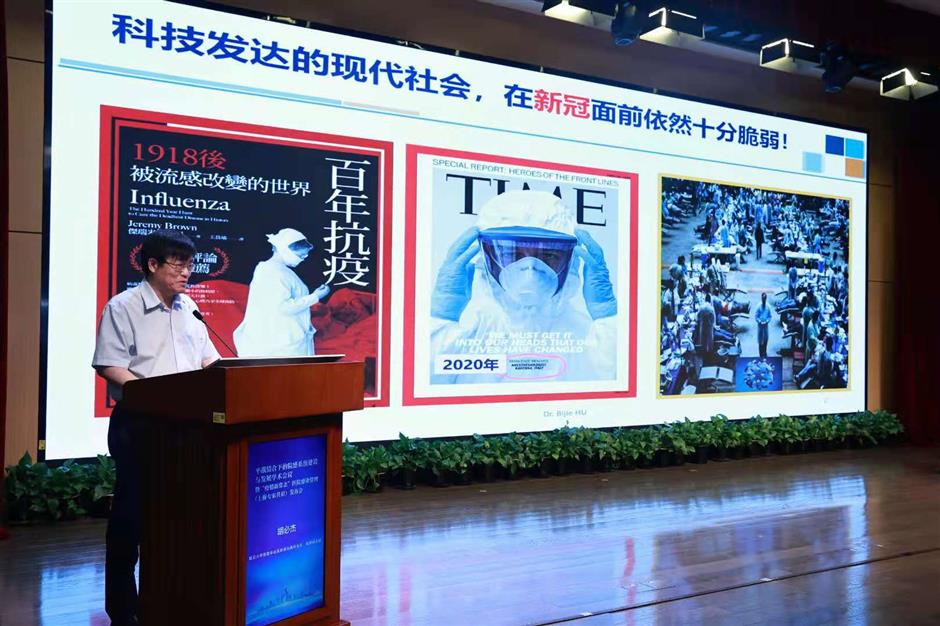Guideline for hospital infection prevention released

Health officials and experts release the nation's first hospital infection prevention and control guideline in Shanghai on Sunday.
The nation's first guideline for hospital infection prevention and control was released in Shanghai on Sunday.
It will provide instructions on both clinical practice and administrative management after the coronavirus epidemic has become the new normal.
Hospital infection has recently received attention, as there have been outbreaks of COVID-19 cases inside hospitals.
The epidemic has exposed loopholes, which need to be corrected and improved, health officials said.
"We invited top experts and hospital presidents to work out the guideline to direct hospital infection prevention and control and reduce infection risk," said Zheng Junhua, from Renji Hospital, one of the leading officials initiating the guideline.
"There is a lack of professionals and many hospital staff are not qualified in infection prevention. So we regulate different aspects such as hospital management, information monitoring, risk evaluation and superbug prevention and control."
He said hospital infection control is a long-term task and should be adopted in the entire clinical practice and management process.
"According to overseas data, about 20 to 30 percent of deaths in hospitals are caused by hospital infection, such as superbugs in intensive care units," he said. "The resurgence of COVID-19 cases in hospitals shows poor awareness and management loopholes."

Dr Zheng Junhua from Renji Hospital talks about support and management for hospital infection control.
Dr Zhang Wenhong, head of the Shanghai's COVID-19 treatment team, said the guideline is very important, as "hospitals are the connection between coronavirus cases and community infection."
"Now we are facing a large pressure of imported cases, so hospital infection control is the key to prevent the virus spreading from medical facilities to the community," he added.

Dr Zhang Wenhong said hospital infection prevention and control is a key during the campaign against COVID-19.
Hu Bijie, director of the Shanghai Hospital Infection Quality Control Center, the city's the city's top institution devoted to hospital infection, said the process of COVID-19 diagnosis and treatment should also be optimized.
"Currently, quarantined people with suspicious symptoms or a positive result of nucleic acid test are sent to a designated hospital for further checks and tests," he said.
In Shanghai, each district has one designated hospital to receive such suspicious cases, which will be transferred to the Shanghai Public Health Clinical Center after being confirmed infection.
"Visiting different hospitals imposes risk of cross-infection and we have suggested that suspicious cases should be sent to the public health center directly for further diagnosis. The city government is considering our suggestion and is working on a plan."
He said education and training on hospital infection professionals, medical staff and all people working in highly-risky positions should be enhanced.
"Infection control doesn't only mean protective outfits and gloves," he said. "Many front-line staff don't know or don't strictly follow the proper procedure of putting on and taking off outfits, which then become an infection source."

Dr Hu Bijie said modern society, despite advanced science and technology, is still vulnerable to COVID-19.













